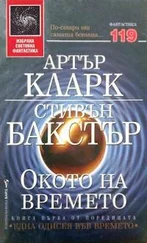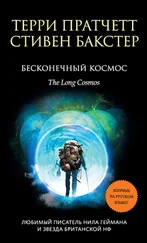'Like what?'
T don't know. Like nuclear fooking war.' 'Nuclear war?'
'Sure. If the world was going to fooking hell, it would have touched everybody's lives, even before the Big One dropped. For the Beatles, it just kept them in the studio together a while longer.'
'Their contribution to world peace,' I said sourly.
'They used to think like that,' he said defensively. 'What was that story of Sick Note's? He found some way out the back of the boat -'
I tried to remember. 'Liverpool was rubble.'
The surface of the Moon. But Sick Note might have found some cellars, where things had survived - GE cookers and Philco fridges and Beatle albums - sheltered from the fire storms, preserved since 1971.
I felt scared again.
'We're running out of LP,' said Lightoller. 'So what?'
'So there are a lot of great tracks not here,' he said. 'Like Lennon's "Love". Harrison's "My Sweet Lord" and "What Is Life". "Imagine", for fook's sake.'
'They must have been issuing singles.'
'You're right.' I could hear the pain in Lightoller's voice. 'And we'll never get to hear them.'
'But if we found the other world…'
We were silent for a while, just listening.
Lightoller said softly, 'What if we couldn't find our way back?'
I shrugged. 'Sick Note did.'
He eyed me. 'Are you sure?'
Neither of us tried it.
The fifth track was 'God', in which Lennon, at great and obsessive length, discarded his childish idols, including Jesus, Elvis, Dylan, even the Beatles.
'Oh,' said Lightoller. 'There's the compromise. What McCartney agreed, to keep Lennon on board.'
'That and not doing "Teddy Boy".'
'At least Lennon didn't push for "Mother".'
I tried to focus on the music. The production didn't sound to me much different from the way I'd heard it on the Plastic Ono Band album.
But some unruly piece of my brain wasn't thinking about the Beatles.
Sick Note had said he saw shooting stars, everywhere, over ruined Liverpool. Oh. 'Comets,' I said.
Lightoller said, 'Comets?'
'Not nuclear war. Comets. That's it. If a comet hit the Earth, debris would be thrown up out of the atmosphere. Molten blobs of rock. They would re-enter the atmosphere as -'
'A skyful of shooting stars.'
'Yes. They would reach low orbit, keep falling for years. The air would burn. Nitrous oxides, acid rain - the global temperatures would be raised all to hell.'
'So in some alternate world a comet landed on Yoko, and the Beatles never broke up.' Lightoller laughed at me. 'Only a true Beatles fan would lay waste to the fooking Earth to get a new album.'
'I don't think this is funny, Lightoller.'
'God' wound to its leaden close. The stylus hissed on the spiralling intertrack, and Lightoller and I watched it. I knew what he was thinking, because I was thinking exactly the same.
This would be the ultimate track - the twelfth track on the twelfth album.
The last new Beatles song we would ever hear.
Because, of course, by now we both believed.
It was recognizable from the first, faded-in, descending piano chords. But then the vocals opened - and it was Lennon.
'It's "Maybe I'm Amazed",' I said, awed. 'McCartney's greatest post-Beatles song -'
'Just listen to it,' said Lightoller. 'He gave it to Lennon. Listen to it.'
It didn't sound like the version from our world, which McCartney, battered and bruised from the break-up, recorded in his kitchen.
Lennon's raw, majestic voice wrenched at the melody, while McCartney's melodic bass, Starr's powerful drumming, and Harrison's wailing guitar drove through the song's complex, compulsive chromatic structure. And then a long coda opened up, underpinned by clean, thrusting brass, obviously scored by George Martin.
At last the coda wound down to a final, almost whispered lament by Lennon, a final descending chord sequence, a last trickle of piano notes, as if the song itself couldn't bear to finish.
The stylus hissed briefly, reached the run-off groove, and lifted.
Lightoller and I just sat there, stunned.
Then the magic faded, and I got an unwelcome dose of reality: a sense of place, where we were and what we had become: two slightly sad, slightly overweight, forty-ish guys mourning the passing of a friend, and another little part of our own youth.
Lightoller put the album back in its sleeve, and slotted it carefully into its place.
We found our way outside, to the dock.
The old ship's stern towered over us. It was late by then, and the ship blazed with light from its big promenade decks and the long rows of portholes. Up top, I could see the four big funnels and the lacework of masts and rigging. People were crossing the permanent gangways that had been bolted to the side of the ship, like leashes to make sure she never shook loose again.
'She's an old relic,' said Lightoller. 'Just like Sick Note.'
'Yeah.'
'All fooking bullshit, of course,' he said.
'Other worlds?' 'Yeah.'
It was starting to rain, and I felt depressed, sour, mildly hung over. I looked up at the stern and saw how the post-Heseltine paint job had weathered. Even the lettering was running. You could still make out the registration, LIVERPOOL, but the ship's name was obscured, the I's and T's and the N streaking down over the hull, the A and C just blurred.
We turned our backs and started the walk to the bus stop.
Lightoller and I don't talk about it much.
I'd like to have heard those singles, though.
A reference to Dante's 4-dimensional geometry, mentioned in 'Dante Dreams', can be found in 'Dante and the 3-sphere', Mark Peterson, American Journal of Physics vol. 47, pp 1031-35, 1979.
'Martian Autumn' is dedicated to Colin Pillinger and the Beagle 2 team. The Beagle, riding ESA's Mars Express spaceprobe, is scheduled for launch in June 2003, and should land on Mars at Christmas that year.
'Sun God' is based on a splinter of fact. Earth and Moon swim together through a sea of objects called NEOs: near-Earth objects, or Earth-crossing asteroids, with orbits similar to Earth's. Some are rocky, some metallic, others are rich in organics. Some NEOs have orbits which seem too close to Earth's for coincidence. A small, dim NEO called 1991JW, discovered at Palomar Observatory, tracks the Earth so closely that it has been suggested it may be a Saturn V third stage, abandoned after delivering its Apollo to the Moon, lost and rediscovered decades later. The story is a pendant to my novel Titan.
Of the stories set in the multiple universes of the Manifold, 'Sheena 5' is set in a closely related variant cosmos to that of my novel Time; 'Huddle' and 'The Fubar Suit' are pendants to Space; and 'Grey Earth' is a pendant to Origin. 'Refugium' and 'Touching Centauri' are each set in their own parallel universes within the Manifold. The ideas in 'Touching Centauri' are further explored in 'The Planetarium Hypothesis: A Resolution of the Fermi Paradox,' Journal of the British Interplanetary Society, vol 54 nos. 5/6, May/June 2001.
'Tracks' derives from an interview I conducted with Apollo 16 astronaut Charles Duke in July 1999, the thirtieth anniversary of
Apollo II's first lunar landing. The story is based on a vivid dream Duke had before his only spaceflight.
'Marginalia' is a pendant to my novel Voyage. 'The Gravity Mine' is a pendant to my novel Time.
I was honoured to win the British Science Fiction Association Award for best short story in 1998 for 'War Birds'. 'Moon-Calf won the Analog Magazine Analytical Laboratory Award for best short story of 1999, while 'Sheena 5' won the same award for 2000, and won second place in the Theodore Sturgeon Memorial Award for best short fiction of 2000. 'Huddle' won the Locus Award for Best Novelette for 2000. 'The Gravity Mine' was a Hugo nominee for best short story of 2000.
Читать дальше
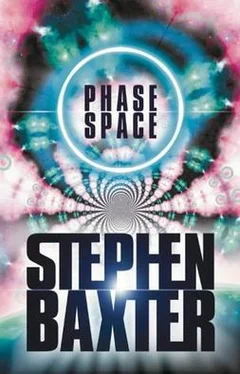
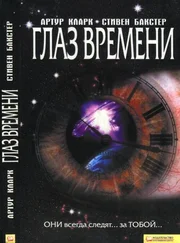

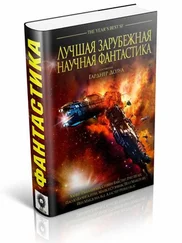
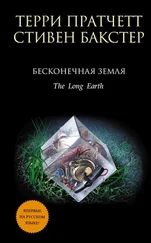
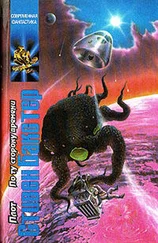
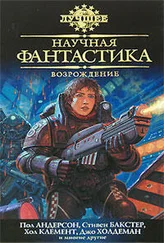
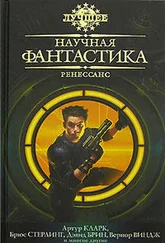

![Стивен Бакстер - Бесконечный Космос [litres]](/books/415680/stiven-bakster-beskonechnyj-kosmos-litres-thumb.webp)
